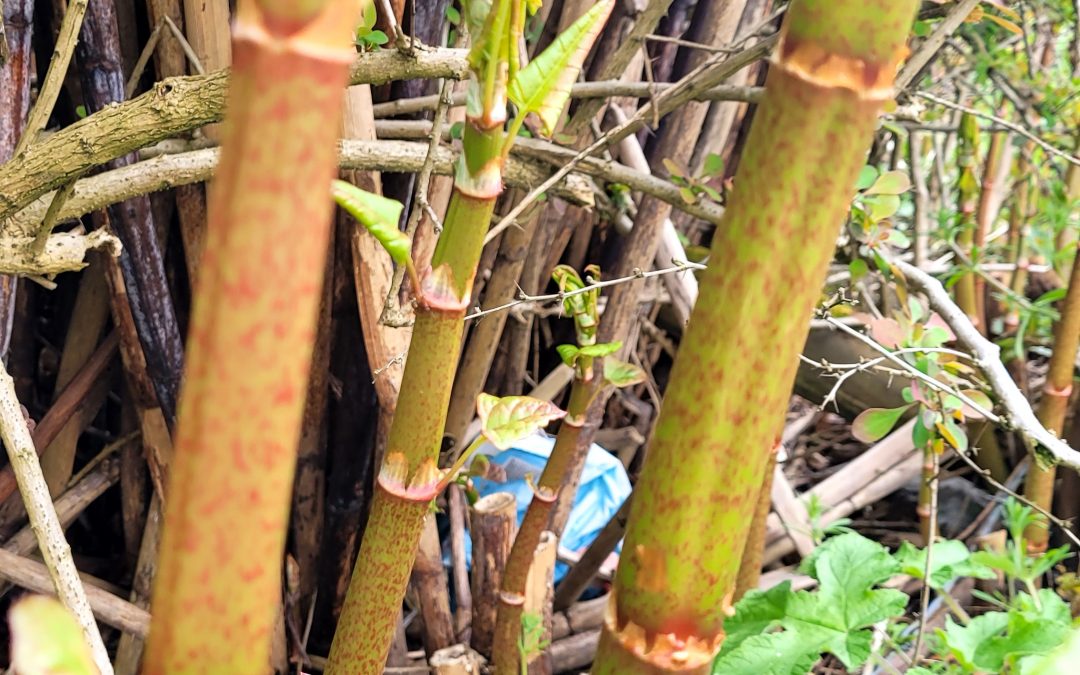Does cutting Japanese knotweed make it spread?
Cutting Japanese knotweed is not recommended as a method of control. It can actually promote the spread of the plant. This is because cutting the plant stimulates new growth and causes it to spread even more rapidly. Additionally, cutting the plant may result in tiny pieces of rhizomes being spread. They could be spread far and wide, and lead to the establishment of new colonies of the plant.https://www.gov.uk/government/publications/japanese-knotweed-managing-on-development-sites
Japanese knotweed is a highly invasive species. It may cause significant damage to buildings and infrastructure. The roots of the plant can penetrate deep into the ground. They can cause structural damage to buildings, walls, foundations, and drainage systems. The plant can also out compete native vegetation, reducing biodiversity and altering the local ecosystem functions.
Effective control of Japanese knotweed requires a multi-faceted approach.
These could include a combination of physical and chemical methods. Physical removal of the plant, either by digging it up or removing it from the site. This can be the most effective method of control. It requires careful planning and implementation. Chemical methods, such as herbicide application, can also be used to control Japanese knotweed. They must be carried out by trained professionals, and proper safety precautions must be followed.
In addition to physical and chemical methods. It is important to have measures in place to reduce the risk of spread and reinfestation. This may include restricting access to infested areas. Avoiding soil or plant material disturbance, such as digging or construction activities, in areas where the plant is known to be present. Proper disposal of infested soil or plant material is also critical. To prevent the spread of Japanese knotweed to new areas.
Always try to reduce the spread of Japanese Knotweed.
Spreading Japanese knotweed that has been cut can have several consequences, as the plant has the ability to regenerate from small plant fragments. Here are the main consequences of spreading cut Japanese knotweed:
Regrowth and colonization: Japanese knotweed is highly resilient and capable of regenerating from even small fragments of its stems or rhizomes. If cut plant material is spread to new areas, it can take root and establish new infestations, leading to the colonization of previously unaffected locations.
Increased spread and infestation size: Each fragment of Japanese knotweed has the potential to develop into a new plant, resulting in the rapid spread and expansion of the infestation. This can significantly increase the size and density of the knotweed population, making control efforts more challenging and costly.
Environmental impact
Environmental impact: Japanese knotweed is known to outcompete and suppress native plants, reducing biodiversity in affected areas. When spread through cuttings, it can invade and dominate natural habitats, disrupting ecological balance and negatively impacting native flora and fauna.
Property damage: The strong and invasive nature of Japanese knotweed can cause damage to buildings, roads, and drainage systems. Its extensive root system can grow through small cracks, leading to structural weaknesses and costly repairs.
Legal and financial implications: Spreading Japanese knotweed, intentionally or unintentionally, may have legal and financial consequences. In some countries, it is illegal to allow the spread of Japanese knotweed. Therefore individuals or organizations may face penalties or legal action if found responsible for its dispersal.
To prevent the spread of Japanese knotweed through cuttings, it is crucial to handle and dispose of plant material properly. Proper waste management and following local regulations are essential. It is recommended to speak with somebody like me who will follow established guidelines for the safe and effective control and disposal of Japanese knotweed.
Therefore cutting Japanese knotweed is not recommended as a control method.
Moreover can actually promote the spread of the plant. Good control requires a combination of physical and chemical methods. As well as preventative measures, to reduce the risk of spread and reinfestation. If you suspect that you have Japanese knotweed on your property. Its is important to consult a professional for advice on the most appropriate control methods to use.
